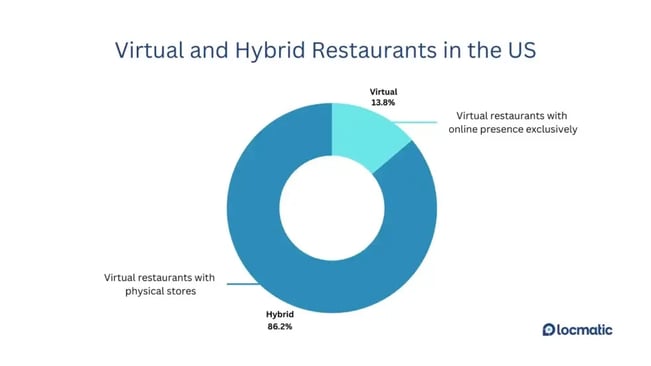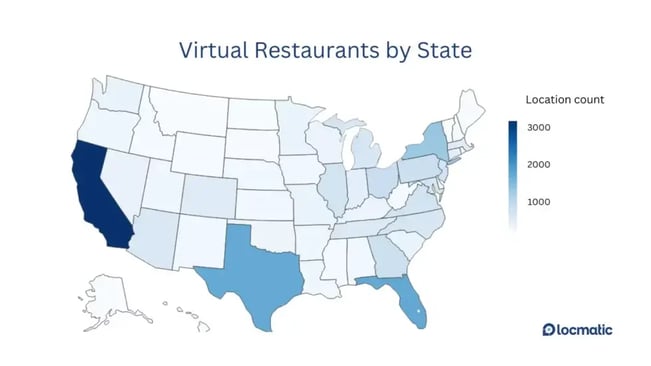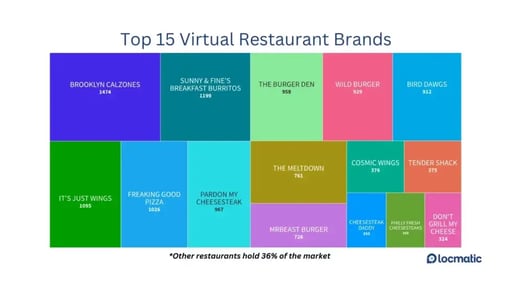What exactly is a virtual restaurant brand?
A virtual restaurant brand is a food or beverage business that operates exclusively online, without a physical brick-and-mortar location for dine-in services. The physical space is limited to the kitchen space, used for food preparations.
The concept of virtual restaurants gained significant traction during the pandemic, driven by the need for physical distancing. Since then, the popularity of virtual brands has only increased, with many now branching out into physical locations or integrating their online menus into traditional restaurant settings.
Virtual vs. Hybrid
Very few restaurant brands operate exclusively online. Among the total virtual brands, 86.9% run in a hybrid model while only 13.1% serve exclusively online.

Naturally, the virtual-only presence limits restaurants’ market to online food delivery businesses. That’s why many virtual brands gradually transition to a hybrid model, especially after seeing their menus selling out. But here’s the scoop — many of these virtual restaurants are run by large parent restaurants testing new markets. It’s like dipping their toes before taking a plunge into a new market.
Virtual restaurant brands at a glance
For the sake of the analysis, Locmatic has selected the top 100 virtual brands in the US based on the number of their locations.
States big on virtual kitchens
When it comes to states with a high concentration of virtual restaurants, California leads with 3,097, followed by Florida (1,629), Texas (1,612), and New York (1,206). This isn’t surprising — these states have large populations and are frequently ranked among the top states for tech jobs and innovation, making them ideal environments for virtual restaurant growth.

But there’s no denying that states with a lower presence of virtual kitchens signal whitespace opportunities for brands looking to expand. These markets currently have less competition, enabling virtual brands to establish a strong foothold and easily capture new customers. All it takes is understanding the market’s appetite — pun intended.
Biggest players in the virtual brands market
Brooklyn Calzones is the biggest name among the virtual brands, serving in 1,474 locations with a 12% market share. The next three top virtual restaurants are Sunny & Fine’s Breakfast Burritos, It’s Just Wings, and Freaking Good Pizza.

Thirty-six percent of the virtual brand market in the US is occupied by other independent restaurants with fewer locations. This indicates that there’s no dominant brand. So, it opens up opportunities for new entrants to establish a strong presence in the virtual restaurant industry.
Top 10 menu items in the biggest markets
Among the four states big in virtual restaurant brands, there is a striking similarity — the dominance of pizza and burgers. These comfort foods have topped the charts.
What’s intriguing is that cookies and cookie dough made it to the top 10 list in the Golden State, suggesting a preference for indulgent treats among Californians. On the other hand, Florida leans toward protein-rich meals with a preference for wings, cheesesteaks, and chicken tenders. The popularity of these “game-day foods” aligns well with Florida’s strong sports culture.

One thing to note is that the top menu items are staples. Also, it seems virtual brands have yet to test the market with more regional culinary flavors.
Understanding the virtual brands market helps operators identify local preferences, customize their offerings, and introduce new flavors to stay ahead in the competitive market.



